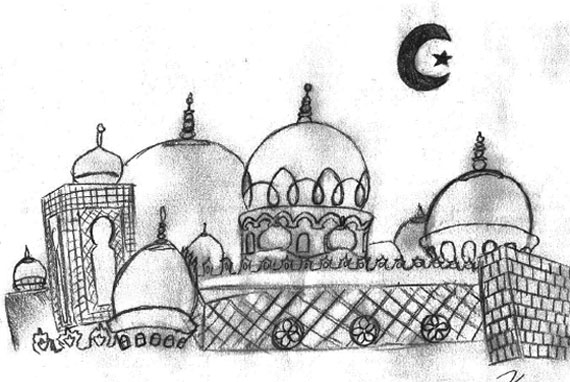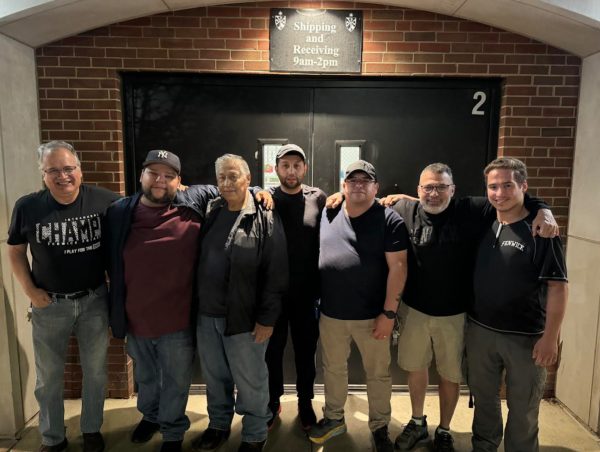Middle Eastern Course To Be Offered Next Year

Illustration by Kayla Romero
Fenwick is offering a one semester Middle Eastern History course next school year to students who are interested in a detailed exploration of the culture, religion and history of the Middle East.
This is an elective course with no prerequisites. The class counts as half a social studies credit, which can be taken in addition to the required 2.5 history credits.
The course will start at the break of the Ottoman empire, up to current events, with a focus on cultural groups, languages and religions of the region.
The course will also involve in depth discussions of how the region’s past affects modern history, as well as the region’s relationships with other countries.
Alex Holmberg, social studies department chair, feels that this course will help students to become more aware and knowledgeable of current events in the U.S and across the world. He says, “Realities of how countries are formed helps with a greater insight on issues happening today.”
Due to the region’s volatile history, many Americans have misconceptions about the Middle East, as well as those who live there. “Lots of people don’t see the difference between Arabs and Islam,” Holmberg states, adding that he hopes that this course will help to address misconceptions regarding Islam and the Middle East.
This course was originally introduced about 7 years ago, along with three other regional history courses including East Asian history, African study and Latin American History. Each year, the department rotates between two of these regional history courses. Originally, these courses were introduced to fill a half credit in the required 2.5 social studies credits. These regional history courses have not been populated enough in recent years.
This is most likely due to the fact that when Civics was made a required course, the regional history courses became an elective. Unfortunately, due to the required Civics/Government courses, it is difficult for students to add a nonrequired history elective to their hectic schedules.
Despite these challenges there is still great enthusiasm within the social studies department for offering a Middle Eastern history course. European and US History teacher, Gary Richied feels that the course provides a more in depth examination of the Middle East than is offered in courses such as the freshman World Civilizations course.
Richied explains that the “demographic and economic trends coupled with the historical and religious significance of the Middle East, make it a region of immense importance and one that will truly shape world affairs in the near and distant future.”
Likewise, AP Government teacher Grace Lilek also emphasizes the importance of this course, especially to the youth of today’s generation, stating, “I believe there are two topics that will be of extreme importance to the generation of current high school students: The environment and the relationship the Middle East has with the rest of the world. Learning about the history of the Middle East and the religions that influence the region is critical for all citizens.”
The department faculty aren’t alone in their enthusiasm for the course. After polling Fenwick students, it was clear that many expressed an interest in the course and would consider taking it next year. Sophomore Kira Zielinski says she would consider taking the class next year due to its current relevance. She says, “I think it’s important that we understand the history of the Middle East because it makes it easier to understand people that are different from us. When we know their history, we are able to understand how this shapes their unique mindset.”
Mr. Holmberg encourages any students with questions regarding the Middle Eastern history course, or any regional history course to reach out to him directly at [email protected]




